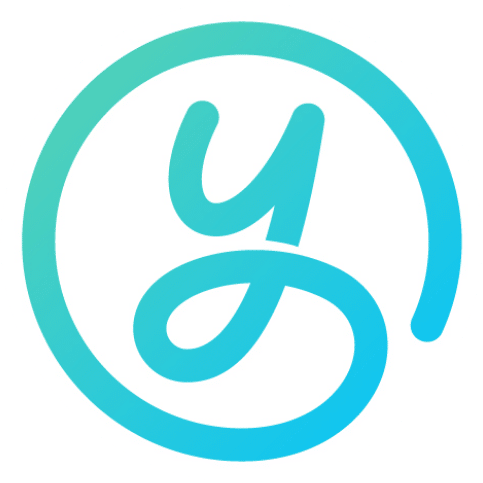If you are looking for guidance, examples, and prep tips for the University of Waterloo’s School of Accounting and Finance Admissions Assessment (SAFAA), then you’ve come to the right place.
This Application Prep guide is fully updated with the 2022/2023 application (i.e. for applicants planning on starting the program in Fall 2023).
IMPORTANT: Prior to this year’s application, the SAFAA was called the Accounting and Financial Management Applicant Assessment (AFMAA), so don’t be confused if you see it written both ways.
Before you dive in, it’s important to understand that the admissions committee receives thousands of applications every year. To help you stand out from the crowd, you need to demonstrate a clear sense of self, strong life experience, and exemplary communication skills.
Our ‘full student’ coaching process does exactly that. If you’re not working with a coach, be sure to read the Self-Awareness, Goal-Setting, and Narrative Communication Skills Guides.
The Narrative Communication Approach™ is a particularly useful storytelling framework that helps you tell a clear and concise story, while creating an emotional connection with the reader.
All Waterloo AFM examples and templates use this approach. Our templates show you a suggested answer structure that uses the Narrative Communication Approach™. Using this structure does NOT mean that your written/video answers will be the same as other students. That’s like saying using the 3 Act Structure makes every play, movie, and novel the same. The content of that story makes it unique.
We also suggest following the 5-step process we teach, seen here.
COACH’S TIP: We’ll focus on the Waterloo Accounting and Financial Management (AFM) application in this guide. However, if you are also applying to Waterloo’s Sustainability and Financial Management (SFM) program, you only need to complete ONE SAFAA application. The application to both programs is the SAME.
If you’re serious about getting into Waterloo’s School of Accounting and Finance and reaching your fullest post-secondary potential, connect with a coach. It’s never too early to receive coaching.
Table of Contents
- 2022-2023 Waterloo SAFAA: Overview; Deadline; Evaluation criteria; and More.
- Video Interview: Questions breakdowns; Answer templates; Examples; Prep Tips; and More.
- Trait Assessment: Overview; Tips for completing the assessment; and More.
- AIF: Overview; Section 1-3 breakdown and examples; and More.
2022-2023 Waterloo AFM: Video Interview & Trait Assessment
Waterloo SAFAA (formerly AFMAA) Overview
The Waterloo SAF Admissions Assessment (SAFAA) is mandatory for all students applying to Waterloo’s School of Accounting and Finance.
REMEMBER: Once you apply through OUAC (deadline is February 1, 2023), you will receive an email with the links to both of these components. The Waterloo SAFAA deadline (interview, trait assessment, AIF if you choose to do it, and all other supporting documents) is February 17, 2023 at 11:59pm EST.
The video interview and trait assessment are both completed through third party sites. Once you apply through OUAC, you will receive an email from UW SAF with the subject like “Your SAFAA Links”. Here, you will find the link to both these components.
Access your template for the Waterloo AFM SAFAA interview and AIF here (we’ll go through each question more below).
The SAFAA is made up of two parts (see below for a complete breakdown of each):
- Interview: 3 video questions and 4 written questions (including a consent question)
- Trait Assessment: 78 written questions, where you rate on answers on a ‘Agree Completely’ or ‘Disagree Completely’ scale of 1-7
Waterloo SAFAA (AFMAA) Evaluation
The admissions committee evaluates your entire application, taking 3 main evaluation criteria into consideration:
- Interview
- Trait Assessment
- Academic Performance
Since your grades can only get you so far, you need to spend extra time thinking about and preparing for your interview and trait assessment, and finding unique and memorable ways to communicate your experiences, interests, leadership potential, and suitability to the Waterloo AFM program.
This is exactly why we created this App Prep Guide — to help you prepare you for your video interview and trait assessment so you can stand out from the crowd.
When looking at your interview and Trait Assessment answers, Waterloo SAF looks for students who:
- Can communicate in a clear, concise, and professional way
- Are passionate, dedicated, and hard working
- Have participated in a wide range of extracurriculars, volunteer opportunities, and work experiences
- Can learn their academic and personal experiences to help them grow as young adults and evolve their learning strategies
- Can collaborate with others and constantly evolve their learning strategies
Not sure how to show these qualities on your application?
Keep reading for Waterloo SAFAA (AFMAA) interview breakdown, templates, and examples, and connect with a coach to help you create a unique and authentic application to help increase your chances of admission success.
2022 Waterloo AFM Application: Part 1 – Interview
Waterloo AFM Interview Overview
The video interview is the first component of your Waterloo SAFAA.
Here’s a quick snapshot of what you can expect:
- Before recording your final responses, you will do 7 practice questions (3 video and 4 written). Want to know a secret about the practice questions? Keep reading for the inside scoop (we promise it’ll give you an edge on your final responses).
- There are 3 video questions (see below for the questions, examples, and more).
- There are 4 written questions, including consent, scholarship/fellowship opportunities, and repeated courses information.
- You will have 1.5 minutes (90 seconds) for each video question and 5 minutes for each written question. You will get 10 seconds of prep time for each question.
- The entire interview will take about 20-30 minutes to complete.
You might be wondering why you have to do an interview.
Because your reviewers only know the surface level information, like your name and high school grades. They know nothing about who you are as a person, where you come from, and how your experiences have shaped your personality, interests, and goals.
The interview is your chance to make a lasting first impression and show what makes you unique and a perfect fit for the program.
Waterloo AFM is looking for students who can communicate in a clear and concise way that showcases your passion and experiences. They also want to see that you can work well under pressure, have the drive to succeed in the program, and can think critically to solve problems.
We know video interviews are super scary, but trust us — feeling prepared will give you a TON of confidence so you can do a great job on the interview.
That’s why we created this guide to give you a clear breakdown of how to approach each question, tips to prepare, and more, so you can let your personality and confident self shine! 🙂
Waterloo Interview Questions
In this section, we’ll give a breakdown and discuss each question in detail, so you know exactly what to focus on when thinking about your answers. We’ll also give you templates and examples for each question.
Access this blank template to help you prep for these questions. DO NOT use this to write answers and read them like a script during the interview. This template is just meant to help you get your general talking points down on paper.
For this component you have to answer 7 questions total.
We’ve given them names (see below) so you can remember each one easily.
The questions will appear in your video interview in this order:
- Q1: 1 written question – Consent Statement
- Q2: 1 video question – Teamwork & Diversity
- Q3: 1 video question – ESG & Corporate Responsibility
- Q4: 1 video question – Personal Uniqueness
- Q5: 1 written question – Scholarship
- Q6: 1 written question – SAF Fellowship
- Q7: 1 written question – Repeated Courses
You’ll notice that most of these questions are personal questions, meaning they focus on your skills, experiences, interests, and goals. To learn how to prepare unique and memorable answers for personal questions during an interview, check out our Interview Prep Skills Guide.
Want in on other essential prep tips for these questions? Connect with a coach now.
REMEMBER: Before you do your interview, you must upload a PDF of photo your ID so that Waterloo SAF can verify it’s you (learn how to upload it in the video below). We recommend scanning the front and back of your ID and having it easily accessible so you can find it and upload it quickly.
COACH’S TIP: ICYMI — the practice questions are the SAME as the formal questions! Use the practice questions as a warm up and pretend that it’s the real thing. Make a few notes about how you can improve or areas of your prepared answer that didn’t feel right. You get unlimited tries for the practice questions, so take advantage of this! Then, when you get the formal assessment, your answers will be 💯.
Waterloo AFM Interview Questions: Q1 (Written) – Consent Statement
The first question is the written consent statement, where you must agree to be recorded and state that all of the answers you are giving are your own.
It’s super easy, don’t worry about it. We just put it here so you make sure you know what your student number is so you aren’t frantically searching for it during the interview. 🙂
Waterloo AFM Interview Questions – Template
Get started on your template here (Click File > Make a copy > Save to your computer).
REMEMBER: Your statement MUST have your first name, last name, and UW student number (you received this in an email when you applied through OUAC).
Here’s an example of this statement (create your own by opening the template above, filling out the section, and then simply copying and pasting from your Google/Word doc into the system when prompted):

Waterloo SAFAA (formerly AFMAA) Interview Questions: Q2 (Video) – Teamwork & Diversity
Tell us about a time when you worked in a team of people with diverse backgrounds and perspectives and the team encountered a challenge or setback. Describe the process used by the team to collaboratively solve the problem and consider how the diversity of perspectives within the team influenced the outcome. How will this experience affect your future collaborations?
Waterloo AFM Interview Questions – Breakdown
Take a second to think about your beliefs and values — what’s important to you? What are your unique interests? How do you view the world and the people in it? What’s that one thing that gets you out of bed in the morning?
While the answers to questions like these are probably easy, you might not realize that your values are established through your upbringing, surroundings, and environment. For example, say your parents are teachers and they always taught you that self-development and learning is important. Well, you probably really care about this too!
So what does this have to do with teamwork and diversity, you ask?
When you’re working with a group, each person brings their own set of beliefs and values to the table. This comes from important factors like upbringing, background, gender, religion, beliefs, etc.
Each team member has specific opinions about how things should be done, ideas that they can contribute to help out, and you’ll usually get those one or people who like to take the lead (this isn’t a coincidence because taking charge is also a set value). Factors like these are REALLY important for how teams (and individuals) function alone and together.
In business especially, diverse teams are shown to drastically outperform teams that lack diversity. Why? If you work in a group who thinks the exact same way as you do and has the exact same ideas, opinions, then you will always be stuck in an endless loop and you will continue to make the same mistakes, have the same ideas, and never evolve.
Diversity leads to change and it breaks us out of our usual ways of thinking by giving us new perspectives and insight into many different issues. In fact, studies show that companies who have more diverse employees are more likely to introduce radical innovations that challenge the status quo. Put simply, collaborating with people of different backgrounds, genders, religions, beliefs, etc. provides a different point of view that can unlock opportunities that previously went unnoticed.
So how can we tie all this back to your interview answer?
Remember that the focus of this question isn’t on the specific project you were working on or the challenge/setback you encountered. Instead, the focus is on HOW you worked with your team, and how your open mind and your willingness to listen to each person’s unique ideas, opinions, and perspectives helped the team succeed.
Waterloo SAF wants to see that you can learn from your peers and apply it to your future learning strategies.
To really get this across in your answer, think about some of these questions: Was opening yourself up to new perspectives difficult or easy for you? Did it challenge your own values and beliefs? Did you have a specific ‘eureka’ moment? How did having a diverse and inclusive team help you reach a specific outcome?
Finally, provide deep insight beyond this experience by showing how it will affect your interactions with others moving forward. For example, you could talk about how this experience opened your eyes to effective strategies for inclusion or how it fundamentally changed your approach to problem solving because now you consider each problem from a different angle and viewpoint.
We know that answers to questions like these can be tough to come up with, but remember that we’re here to help. Connect with a coach to learn how to communicate your experience and learnings in a unique and memorable way.
Waterloo AFM Interview Questions – Template
Get started on your template here (Click File > Make a copy > Save to your computer).
***COACH’S TIP: This tip is REALLY IMPORTANT! These templates are meant to help you prepare your answer for each video question. During the interview, DO NOT read your template word for word. This will come across as overly practiced and inauthentic. Instead, think of these as talking point prep templates, where you simply write some bullet points that you can use as general points/themes you want to cover for each answer.***
Using our Narrative Communication Approach™, the general structure of your video response should have these 5 components (get a detailed breakdown of each component here):
- Hook (Optional)
- Capture the reviewer’s attention by listing a captivating experience that creates an emotional connection from the beginning. Keep this section short.
- Context
- Provide some specific background information about the time you worked with a team of people. Answer the 5Ws (Who, What, When, Where, Why). Try to paint the ‘before’ picture here, including what the goals of the project were, how you thought the experience would be, etc.
- Catalyst
- Discuss what challenge/setback you encountered, providing specific examples where possible (this is the ‘after’ scenario you introduced in the Context section). Give a detailed description of your emotions when this challenge/setback was occurring, as well as how you and the team reacted.
- Outcome
- Talk about the turning point in this experience when you and your teammates use each other’s diverse perspectives to address the problem, providing 1-2 examples of how you did this. Briefly state what happened after you solved the problem together.
- Reflection
- Provide some insight into how the diverse perspectives of your and your teammates helped solve the problem. Be as specific as possible here. Then, state how this experience helped you grow as a student and how you plan to apply this learning going forward as you begin new group projects and collaborate with others, especially as a Waterloo AFM student.
Waterloo AFM Interview – Example
Here’s a sample response for this question.
REMEMBER: This is an EXAMPLE ONLY and is NOT meant for you to copy. Why? First and foremost, this is plagiarism and is a serious offense. Plagiarizing these essays will result in immediate disqualification from the admissions process. This can be easily detected using technology and application reviewers are usually trained and/or able to spot when an application isn’t original and does not align with an applicant’s background, personality, values, etc.
Nail your SAFAA and Trait Assessment.
get a youth coach™Joel
Waterloo AFM
Youth Coach™

Waterloo AFM Interview Questions: Q3 (Video) – ESG & Corporate Responsibility
Tell us about your familiarity with Environmental, Social and Governance (ESG) metrics. What role do you think the business community should play, if any, in addressing environmental issues like climate change and social issues such as equity, diversity, and inclusion?
Waterloo AFM Interview Questions – Breakdown
In the last few years, customers, investors, and employees have focused more on what people and businesses are doing to support sustainability, like reducing GHG emissions or reducing waste, and what steps they’re taking to address social issues like racial discrimination, poverty, and unemployment.
The focus on environmental and social responsibility was taken one step further when the United Nations (UN) created 17 Sustainable Development Goals (SDGs) in 2015. The SDGs are a ‘blueprint to achieve a better and more sustainable future for all’ by 2030. They target social, economic, and environmental issues, like gender equality, good health and wellbeing, and building sustainable cities and communities.
ESG metrics fall under this focus on environmental and social responsibility.
Put simply, Environmental, Social and Governance (ESG) metrics are non-financial factors that measure what a company is doing to be more sustainable and socially responsible.
ESG metrics are the sustainability performance of a company and how a company services society. While SDGs apply to everyone, ESG metrics are for the business community and individual companies. If you want to learn more about how SDGs and ESGs are related, check out this article.
As the name suggests, ESG metrics focus on three areas, environmental, social, and governance.
Here’s a quick snapshot of each of these 3 areas so you know exactly what they mean:
- Environmental: This takes into account how much pollution or waste a company produces, through manufacturing, products, operations, etc. For example, an ESG metric in this category could be carbon footprint reduction, water use, or greenhouse gas (GHG) emissions.
- Social: Primarily focuses on the health and safety of a company’s employees, work environment, and products. For example, an ESG metric in this category could be product safety or health and safety records.
- Governance: How the company is run, including authority structures and government decisions. For example, an ESG metric in this category could be diversity and inclusion on a company’s advisory board or ethical behaviour.
ESG metrics can be used for many things, like:
- A business owner trying to improve their public image and seeing what their customers think of their sustainability efforts.
- Marketers who are researching other companies to see how they rank for environmental/social impact.
- Investors who assess projects and investment relationships to decide if putting time, money, and/or resources into a specific company will make a positive impact and generate a high return on investment (ROI).
- A customer who’s trying to decide whether they will buy into a brand’s key messaging and purchase products from that company.
If this sounds confusing, we totally get it. The takeaway here is that people use ESG metrics to see whether a business is being socially and environmentally responsible.
Now you can say that you’re familiar with ESG metrics. 🙂
Okay, so back to the interview question.
In this question, you’re being asked what you believe the business community should do to address environmental issues like climate change and social issues such as equity, diversity, and inclusion.
Do you think companies are responsible for ensuring that their manufacturing facilities and products don’t contribute to climate change? Do you believe that companies must hire more diverse talent and take extra steps to ensure that they feel included and valued?
Now focus on how they can do this.
Remember that they introduced the concept of ESGs into this question, so they are expecting that you will reference this in your answer as well.
We recommend that you split your answer up into two sections: (1) Environmental and (2) Social. Then, under each section, give specific examples of measures that businesses can take to improve in these areas.
Avoid basic answers like “A company should reduce greenhouse gas emissions.” This is super obvious and doesn’t show that you’ve taken the time to think deeply about innovative solutions to these problems. For example, you could talk about how a business could integrate the SDGs into its business strategy or how meaningful partnerships could help a business address key social issues.
What’s another way you can make your answers unique and stand out? While this question doesn’t really ask anything about you specifically, the admissions committee is still looking for some personal insight in your answer that helps them learn more about what’s important to you.
Talk about WHY you believe business should (or shouldn’t) address environmental/social issues, using personal experiences. For example, perhaps you’re a vegan and are completely against consuming animal products because of the moral and environmental issues that meat production involves. Or, maybe you went on a trip to the island of Kahoolawe in Hawaii and saw the huge amounts of bottles, crates, and waste in Kanapou Bay, and from that point vowed to only purchase products from companies who promise to contribute to a global circular economy.
If you frame the question like this, then you can not only state your position on the responsibility of businesses to address environmental/social issues, but you can also talk about how your experiences have shaped who you are and affected your values and how you see the world.
Not sure how to approach this question and incorporate your unique experiences and skills? Connect with a coach to learn how.
Waterloo AFM Interview Questions – Template
The general structure of your video response should have these 4 components:
Get started on your template here (Click File > Make a copy > Save to your computer).
- Hook (Optional)
- Capture the reviewer’s attention by listing a captivating experience that creates an emotional connection from the beginning. Keep this section short.
- Context
- Briefly state the extent of your knowledge of ESG metrics. Don’t pretend to be an expert if you’re not. Instead, show that you’ve done your research and provide a very brief statement of what you understand ESG metrics to be.
- Catalyst
- Discuss why you believe (or don’t believe) the business community should address environmental and social issues. Try to provide as much personal insight as you can here, linking your belief to an experience that changed your outlook on this issue and what impact this had on you moving forward.
- Outcome & Reflection
- Emphasizing the usefulness of ESG metrics, provide 1-2 specific examples under each area (i.e. Environmental, Social, and Governance) of ways that the business community can address environmental and social issues. Provide as much personal insight as you can, such as your experience with businesses who do these things or how you incorporate these into your own life.
Waterloo SAFAA (AFMAA) Interview – Example
Here’s a sample response for this question.
REMEMBER: These examples are EXAMPLES ONLY and are NOT meant for you to copy.
You Might Also Like
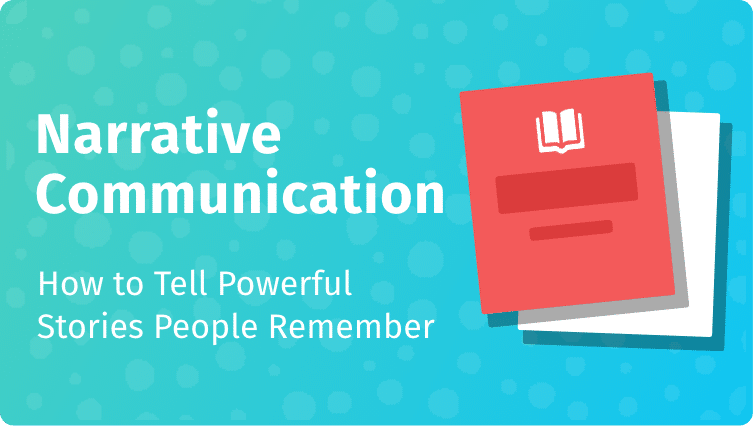
Skills Training
Narrative Communication: How to Improve Your Communication Skills Using Storytelling
At school, you’ve written extensive academic essays, evaluated classical literature, and enhanced your vocabulary. But you’ve never learned—and intentionally practiced—how… Read more
Waterloo AFM Interview Questions: Q4 (Video) – Personal Uniqueness
Tell us how you stand out from your peers, what makes you unique and what life experiences have contributed to make you who you are.
Waterloo SAFAA (AFMAA) Interview Questions – Breakdown
In the first two questions, you were asked more generally about your thoughts on diversity and collaboration and your opinions on important issues like the environment and social issues, and you provided personal insight more indirectly.
The third question, on the other hand, is a personal question that’s all about you.
However, this question is so much more than ‘what makes you unique?’ or ‘what experiences have you had?’. What the admissions committee is looking for here is a clear indication that you have self-awareness. In other words, you know exactly who you are, why you are the way you are, what you’re passionate about, how your experiences have shaped how you interact with the world, and what you want your future to look like.
This might seem obvious and you’re probably thinking, “Duh.. of course I know who I am and what I care about.”
This might surprise you, but very few students actually focus on self-awareness. You might think you have it all figured out, but it’s probably more surface-level than you think (that’s why we have a whole phase in our coaching methodology (the Discovery phase) where we use a Student Identity Blueprint™ to help you figure out who you are and what makes you tick).
If you haven’t already, connect with a coach to get started on your Blueprint. Trust us, it will be key for this question.
To make sure that you answer this entire question, we suggest breaking this question into 3 parts, focusing on skills (part 1), values/interests (part 2), and experiences (part 3). Like this:
PART 1 (SKILLS): HOW DO YOU STAND OUT FROM YOUR PEERS?
This part of the question is pretty broad. A ton of things can make you stand out from your peers.
We recommend that you focus on 1-2 skills as the main differentiator. These skills should be ones you’ve worked really hard to develop and ones that Waterloo SAF looks for in its students, like problem solving, critical thinking, time management, communication, goal setting, and/or organization.
Anyone can have skills, but the key differentiator is what you do with them. Once you’ve picked 1-2 skills, think about how you’ve improved these skills through the experiences you had and how they make you stand out from others.
For example, say your top skills are problem solving and critical thinking. You could talk about how you noticed once in debate club that a lot of your peers’ answers seemed really jumbled and didn’t really answer the question. Then, you realized that if you applied your skills of problem solving to clarify exactly what the issue was and then ensure the ‘right’ problem was being solved, that your answers would be stronger. And, when you applied this during the next debate, you won! This not only shows the skills that you’re strong at, but how you directly apply them to stand out from others.
COACH’S TIP: In your Student Identity Blueprint™, you can easily find this in the Top Skills section. Only use the skills that you rank High or Medium. When trying to tie your skills to a specific experience, check out your Apply These Skills section to help you out.
Once you’ve decided what you want to focus on, write a short description of your unique mix of skills and how you apply them to everyday life (we call this the Skills Statement in the Blueprint). You can also briefly talk about how you apply your skills through specific roles and/or activities.
PART 2 (VALUES/INTERESTS: WHAT MAKES YOU UNIQUE?
Use this section to really dig deeper into the things that make you, you.
For example, you could talk about the things that are most important to you, your interests, and/or your goals for the future. These are all the things that make you unique and completely different from everyone else.
Like the skills you mentioned above, you also want to give examples where you can give more detail. For example, say you are really passionate about taking on new challenges and getting outside of your comfort zone. Then, you can say that because of this you have the unique ability to approach data from a different perspective and see possible formulas and solutions in a way that no one else can, and because of this you want to be an accountant.
If you completed your Student Identity Blueprint™, you can easily complete this section using the How Do You Seek To Apply These Values? section.
Haven’t filled out your Blueprint yet? Connect with a coach to get started.
PART 3 (EXPERIENCES): WHAT LIFE EXPERIENCES HAVE CONTRIBUTED TO MAKE YOU WHO YOU ARE?
In this section, you should take the skills, values, interests, etc. you introduced in Part 1 and Part 2 and provide some specific experiences that helped you develop them.
These should be BIG experiences that really opened your eyes to a whole new world and fundamentally changed who you are as a person and how you look at the world.
If you filled out your Blueprint, get some inspiration about which experiences to choose from the Story section of your Blueprint.
Provide deep learning outcomes about what these experiences taught you and communicate the ‘before’ and ‘after’ picture.
Finally, you want to talk not only about how these experiences changed you, but how you will take your skills, values, interests, etc. into the future with you and how they will affect you as a student and young professional.
If you need help deciding which experiences to choose, connect with a coach to get started.
Waterloo SAFAA (AFMAA) Interview Questions – Template
Get started on your template here (Click File > Make a copy > Save to your computer).
Using our Narrative Communication Approach™, the general structure of your video response should have these 3 components:
- Part 1 (Skills) – Context: What makes you stand out from your peers?
- Provide some background information about you, including 1-2 skills that make you stand out from others. Be as specific as you can and provide examples where possible. This should be a short description of your unique mix of skills and how you apply them to your everyday life (Skills Statement).
- Part 2 (Values) – Outcome: What makes you unique?
- Discuss 2-3 of your unique values, interests, and/or goals. Give some insight into how these make you unique from others and how you apply these values/interests/goals in your daily life.
- Part 3 (Experiences) – Reflection: What life experiences have contributed to make you who you are?
- Think about how the experiences you’ve had have influenced the skills, values, interests, etc. that you mentioned above. Choose 2-3 experiences, briefly describe them, and then talk about how they impacted who you are as a person.
Waterloo SAFAA (AFMAA) Interview – Example
Here’s a sample response for this question.
REMEMBER: This is an EXAMPLE ONLY and is NOT meant for you to copy. Why? First and foremost, this is plagiarism and is a serious offense. Plagiarizing these essays will result in immediate disqualification from the admissions process. This can be easily detected using technology and application reviewers are usually trained and/or able to spot when an application isn’t original and does not align with an applicant’s background, personality, values, etc.
Waterloo AFM Interview Questions: Q5 (Written) – Scholarship Question
To be considered for SAF Entrance Scholarships, you MUST meet the three requirements listed below, which include completion of the Scholarship Question:
- Strong academic performance, and
- Meaningful participation in extracurriculars, community involvement or volunteerism during either your grade 11 or grade 12 school year, and
- Completion of the Scholarship Question below.
If you feel that you meet the requirements to be considered for a SAF entrance scholarship, choose one or two extracurricular, community involvement or volunteerism activities, provide a brief description of the activity, and why it was important to you.
Your response to the Scholarship Question will not be used for your admission decision but is mandatory for SAF entrance scholarship consideration. If you do not wish to be considered for a SAF entrance scholarship or do not wish to complete the Scholarship Question, just type “N/A” into the text box.
Waterloo SAFAA (AFMAA) Interview Questions – Breakdown
Did you know that AFM has 60+ entrance scholarships you can apply for?
Pretty awesome, right?!
To be considered for a School of Accounting and Finance (SAF) Entrance Scholarships, you must submit an application for the Ontario Student Assistance Program (OSAP) and the University of Waterloo’s Entrance Bursary.
You must also meet the three criteria mentioned above:
- Strong academic performance
- Meaningful ECs, community involvement, or volunteer work
- Completing this question during your interview
At this point, your grades are what they are and you can’t really do anything to change them.
But this question isn’t really about your grades at all…
It’s time to show the admissions committee who you are beyond your grades. By sharing your experiences and accomplishments, roles you’ve taken on, and what you’ve learned along the way, they can see what really makes you, you.
COACH’S TIP: There is a 300 word limit for this response. We recommend just choosing ONE activity so that you can give enough discussion about learning and outcomes necessary to really make you stand out for the entrance scholarship.
When thinking about which activity to write about, consider all your activities, like in your community, clubs, work experience, athletics, entrepreneurial ventures, etc.
Choose one that really showcases who you are and how you embody the traits and skills that Waterloo AFM looks for, like leadership, long-term commitment, meaningful initiatives, etc.
Notice this important wording in the question: You must have done “meaningful participation” in ECs, community involvement, and/or volunteer work.
The key word here is meaningful. But what does this mean exactly?
‘Meaningful’ activities come in many different forms, but when we think of meaningful activities, they’re ones that:
- Shaped who you are as a person, like an internship where you realized your passion for finance
- Impacted your community, like a volunteer position you had at your local shelter to raise money to address homelessness
- Provided a learning opportunity that helped you grow as a person, like being the President of your high school’s economics club
- Taught you important life skills like responsibility, teamwork, and problem solving
- Evolved into something more authentic and audacious, like a school project you had that turned into you taking on the challenge of writing a book or doing a TEDx Talk
If you need some help choosing a meaningful experience that will get noticed by the admissions committee, connect with a coach to get started. 🙂
Apart from choosing a meaningful activity, the most important part of this response should be answering why this activity is important to you.
An answer to this could take many different forms. It is intentionally broad so that you can approach it from many angles.
However, we recommend that you choose an activity that was important to you because it provided a specific learning outcome that impacted you as a person and helped you grow.
We also recommend that you choose an activity that shows your commitment to important causes in your community as well as your dedication to make a lasting difference in the places where you live and go to school.
A learning outcome is an experience where you discovered something about yourself that you didn’t know before.
For example, say you were always super introverted and hated group projects because you didn’t like sharing your ideas and opinions. Then, one summer you got an internship at a financial planning firm and you were responsible for working with a team to give their social media account a facelift. You tried doing everything on your own until you realized that the best ideas came from your weekly brainstorm sessions for creating new and exciting posts and that the variety of ideas from different people really made your posts unique. From then on, you saw how different perspectives and ideas led to the best results.
You could also focus on how your experiences fuelled your passion and interests. For example, say your parents always expected you to be a doctor or lawyer, and this was always the path you thought you’d take. Then, one day you volunteered at your local community centre to help organize a speakers’ series to help people learn about personal finance and investment. During this experience you were so taken aback by these seminars so you took an Accounting course in school. From then on, you realized your true path was finance, and not the path your parents thought.
You could also talk about an experience that changed your outlook on the world, helped you build real-world skills, or helped you realize what goals/career you truly wanted.
To communicate your experiences, interests, and skills, we recommend following our Narrative Communication Approach™. This method will help you create a memorable response that is personal and authentic, while showcasing your initiative, teamwork, commitment, and achievement using storytelling.
Digging past the surface level will show that you’ve applied what you learned from this activity in your life and that it’s made you a better student, leader, and person overall (and these are all things that Ivey looks for) — and this will make you a stronger candidate for these entrance scholarships.
COACH’S TIP: You’ll notice that many of these scholarships require you to complete Waterloo’s Applicant Information Form (AIF). This form is optional if you’re applying to the Waterloo AFM program, but we HIGHLY recommend completing one so that you’re eligible for scholarships like the ones above. Keep reading this guide to get a full breakdown and examples for each section of your AIF.
Waterloo SAFAA (AFMAA) Interview Questions – Template
Get started on your template here (Click File > Make a copy > Save to your computer).
REMEMBER: For this question, there is a 300 word limit.
The general structure of your video response should have these components:
- Activity Title & Your Role (~50 words)
- State the organization/company name and your title. Keep it short.
- Why is this activity important to you? (~250 words)
- Discuss why this activity is important to you and what learning outcomes you had while you took part in this activity. See the template for a complete breakdown of this section and the 3 components with it.
Waterloo AFM Interview – Example
Here’s a sample response for this question.
REMEMBER: This is an EXAMPLE ONLY and is NOT meant for you to copy. Why? First and foremost, this is plagiarism and is a serious offense. Plagiarizing these essays will result in immediate disqualification from the admissions process. This can be easily detected using technology and application reviewers are usually trained and/or able to spot when an application isn’t original and does not align with an applicant’s background, personality, values, etc.
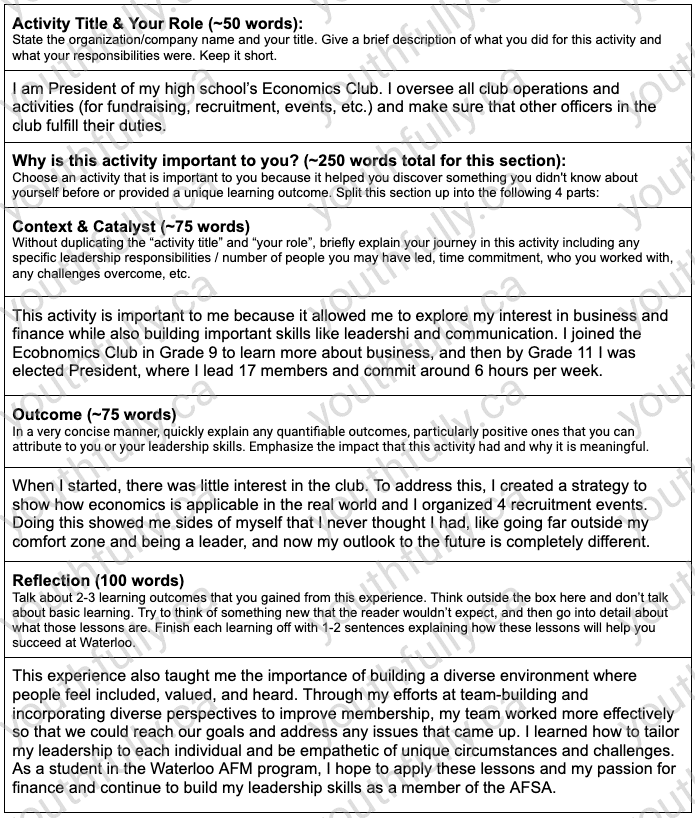
Waterloo AFM Interview Questions: Q6 (Written) – SAF Fellowship
To be considered for the SAF Fellowship Program, you MUST meet the three requirements listed below, which include completion of the Fellowship Question:
- strong academic performance, and
- meaningful participation in community involvement, volunteerism, extracurriculars, or employment during the past 12 months, and
- completion of the Fellowship Question below.
If you feel that you meet the requirements to be considered for a Fellowship, respond to both part a) and part b) below:
- Part A. chose one community involvement, volunteerism, extracurricular, or job from the past 12 months, provide a brief description, and share with us how you benefited from the experience; and
- Part B. choose one community involvement, volunteerism, extracurricular, or job from the past 12 months, provide a brief description and tell us how your involvement created benefit for others.
Your response to the Fellowship Question will not be used for your admission decision but is mandatory for SAF Fellowship consideration. If you do not wish to be considered for a Fellowship or do not wish to complete this question, just type “N/A” into the text box.
Limit your response to 300 words, in total, including both parts a) and b). You will get a word count as you type your response into the text box, or feel free to write your response in MS Word, for example, and copy/paste it into the text box.
Waterloo SAFAA (AFMAA) Interview Questions – Breakdown
This question is really similar to Question 5 because it asks you to talk about your experience doing a meaningful activity.
There are two parts of the question:
- One activity that benefited YOU
- One activity that benefited OTHERS
You might be wondering what they mean by ‘benefit’.
For Part A, ‘benefit’ could mean that it provided a learning opportunity that allowed you to learn more about yourself. It could also be beneficial because it helped you build skills like communication, problem solving, and leadership. Or, it could be more of an abstract benefit like starting your passion in finance or acting as the springboard that eventually led to bigger goals and outcomes, like if your activity was volunteering at a local food bank and this led you to start your own non-profit organization.
The possibilities to show the activity’s benefit are endless. The important thing is that you use this essay to show personal insight, deep learning, and that you’ve thought about how your experiences have impacted you as a person, student and young professional.
For Part B, the word ‘benefit’ is all focused around how your activities have positively impacted your peers, community, friends, and family. It could be a quantifiable outcome, like raising money for a charity, donating 200 meals to your local homeless shelter through your volunteer work, etc. It would also be as simple as something important that you contributed, like an idea that led you and your team to victory in an economics competition.
If you need some help thinking about which activities are the best to choose for this question, connect with a coach now.
Waterloo SAFAA (AFMAA) Interview Questions – Template
Get started on your template here (Click File > Make a copy > Save to your computer).
REMEMBER: For this question, there is a 300 word limit for BOTH activities. This can be divided into 150 words for each activity, or you can give a few more words to one. Just as long as this essay is 300 total, you’re good.
We suggest splitting your responses to Part A and Part B into the following sections:
Part A: Activity that Benefited YOU
- Section 1: Activity Title & Your Role (25 words):
- State the organization/company name and your title. Give a brief description of what you did for this activity and what your responsibilities were. Keep it short.
- Section 2: How YOU benefited from the experience. (125 words)
- Context & Catalyst (50 words)
- Without duplicating the “activity title” and “your role”, briefly explain your journey in this activity including any specific leadership responsibilities / number of people you may have led, time commitment, who you worked with, any challenges overcome, etc.
- Outcome & Reflection (75 words)
- In a very concise manner, explain how this activity benefited you, focusing on things like deep learning outcomings, changing how you interact with others, building key skills, etc. Tie this directly to your passion for accounting/finance, and state how what you learned from this activity will benefit you in the Waterloo AFM program.
- Context & Catalyst (50 words)
Part B: Activity that Benefited OTHERS
- Section 1: Activity Title & Your Role (25 words):
- State the organization/company name and your title. Give a brief description of what you did for this activity and what your responsibilities were. Keep it short.
- Section 2: How OTHERS benefited from the experience. (125 words)
- Context & Catalyst (50 words)
- Without duplicating the “activity title” and “your role”, briefly explain your journey in this activity including any specific leadership responsibilities / number of people you may have led, time commitment, who you worked with, any challenges overcome, etc.
- Outcome & Reflection (75 words)
- In a very concise manner, explain how this activity benefited others, focusing on quantifiable outcomes like hours spent, money raised, etc. Tie this directly to your passion for accounting/finance, and state how what you learned from this activity will benefit you in the Waterloo AFM program.
- Context & Catalyst (50 words)
If you need some help deciding which activities to choose for this section of your SAFAA, connect with a coach for support.
Waterloo SAFAA (AFMAA) Interview – Example
Here’s a sample response for this question.
REMEMBER: These examples are EXAMPLES ONLY and are NOT meant for you to copy.
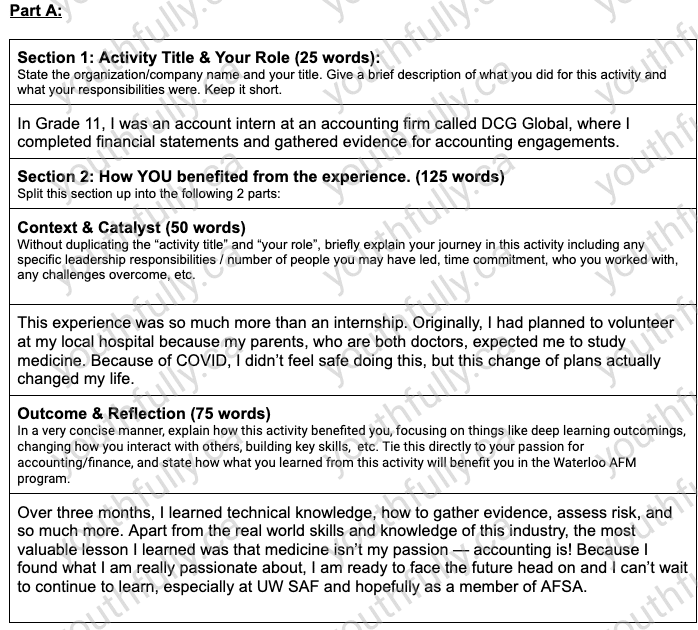
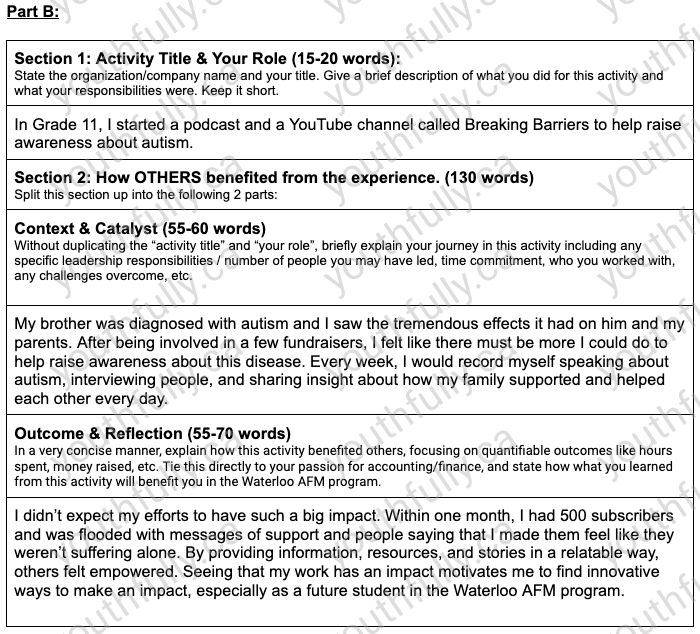
You Might Also Like
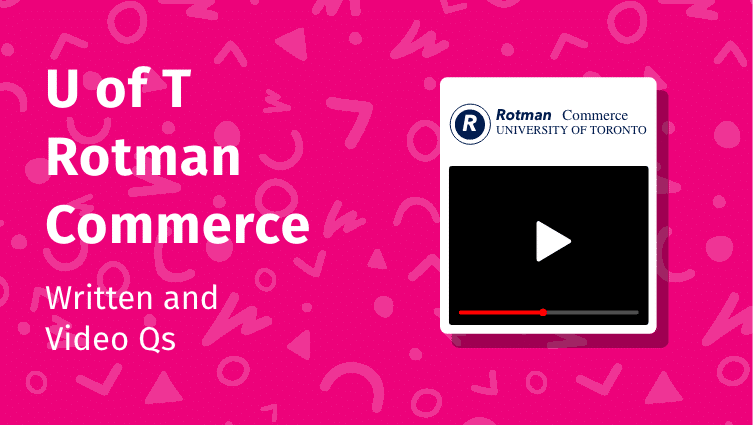
Application Prep
U of T Rotman Commerce: Supplemental Application & Interview Questions Examples 2023/2024
If you’re looking for guidance on the University of Toronto Rotman Commerce Supplemental Application, as well as tips, strategies, and… Read more
Waterloo AFM Interview Questions: Q7 (Written) – Repeated Courses
If you repeated any grade 12 courses, please provide the reason why the courses were repeated. If you did not repeat any courses, enter “No repeated courses” as your response.
Limit your response to 100 words for each course repeated. You will get a word count as you type your response into the text box, or feel free to write your response in MS Word, for example, and copy/paste it into the text box.
Waterloo SAFAA (AFMAA) Interview Questions – Breakdown
This essay does not need to be extremely detailed, but it is meant to provide the admissions committee with a brief explanation about courses you’ve had to redo and why.
Things happen, and sometimes we don’t get the results we expect. If you took a class again, like Grade 12 Math or English, explain why you did that here.
You have 100 words for each course you repeated, so make your descriptions short.
Here’s some key information to include in your answer:
- What was the course?
- When did you take this course?
- Why did you have to take this course again?
- What was the outcome?
Do this for every course that falls into this category, making a separate paragraph for each.
Waterloo SAFAA (AFMAA) Interview Questions – Template
Get started on your template here (Click File > Make a copy > Save to your computer)
We designed this template in a way that will help you organize your thoughts and give the necessary background for each course, so that you can easily turn it into an essay.
Here are the 4 components you should include in this answer:
- Course name (<5 words):
- List the full course name and the course code.
- When You Took It (<10 words):
- Write when you took the course.
- Why Did You Take The Course Again? (<40 words):
- Explain the circumstances that caused you to retake the course.
- What Was the Outcome? (<45 words):
- Talk about what happened when you took it again (i.e. whether you passed/failed taking it again, the grade you got when you retook it, etc.)
Add bullet points in each section, and when you’re done, take out the bullet points and make complete sentences. It’s that easy!
Use this template for every course that falls into this category.
Then, during the interview, simply copy and paste each completed description into the response area.
Waterloo AFM Application Interview – Example
Here’s a sample response for this question.
REMEMBER: These examples are EXAMPLES ONLY and are NOT meant for you to copy.
Example 1: Accident
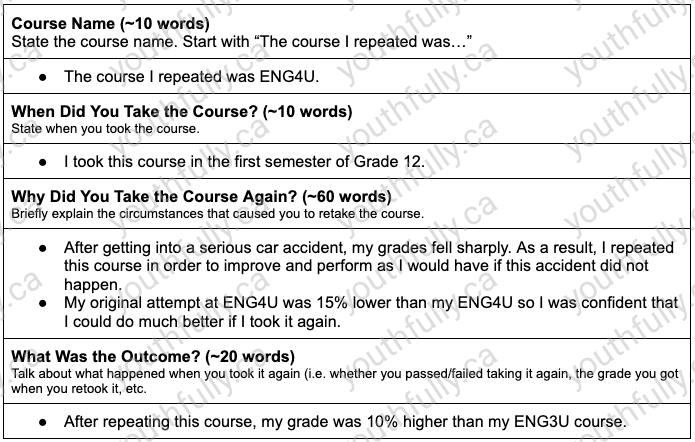
Example 2: Death in the Family
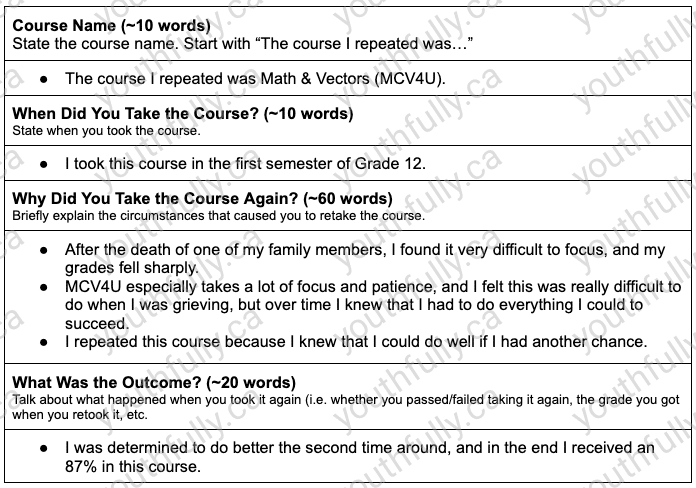
Waterloo AFM Interview – Prep Tips
Many students ask us for tips for preparing for the Waterloo AFM interview.
Here are the ones we think will help you the most for the video and written interview questions:
TIP #1: PRACTICE MAKES PERFECT
It can seem really scary to see yourself talking on screen and worrying about how you are coming across to the admissions committee.
Open up your camera and practice answering Questions 2-4 (discussed above). Seeing yourself on camera will help you get the hang of things and get comfortable with seeing yourself on camera.
When you’re reading, open the video platform and do the practice questions as many times as it takes so you feel comfortable and can refine your answers. As mentioned, the practice questions are the same as the final interview questions (and this is super rare for programs to do this!) so take advantage of this!
If you want to take your prep to the next level, work 1-on-1 with a coach and do some mock interviews so you know exactly what to do when you’re recording your answers for real.
TIP #2: ALWAYS ANSWER THE ENTIRE QUESTION
It seems silly, but it is common to get off track and later realize you didn’t answer the question.
Use the Breakdowns we gave you able to divide the question into smaller components, and address each one as you move through your answer.
If you’re working on a written question, make sure you review your answers to make sure you’ve covered everything. For the video questions, do a full proofread of your video interview talking points template and your written answers to make sure you’ve answered everything in each question.
TIP #3: TAKE YOUR TIME
Sometimes when you know you have a limited amount of time you might speed through everything like a mad race against the clock.
For the video questions, remember to take a breath and pause between your sentences to allow the reviewer time to process what you said. Focus on speaking clearly and slowly.
TIP #4: TELL IMPORTANT INFO ABOUT YOU
Remember that every answer you give should tell the interviewer something about you that boosts your application, even if the question isn’t about you.
Highlight your skills and experiences, show that you have thought about goals, and use the questions to help the admissions committee learn more about you. You’d be a great addition to their program — tell them how!
TIP #5: BE CONCISE
Your answers should be clear and to the point, leaving out unnecessary information. In the video questions, you don’t want to ramble — get to the point and be clear.
The written questions are the same. You don’t get that many words, so you have to make each word count. Get rid of information that is repetitive or doesn’t add value. It is better to have a short, concise answer than a convoluted answer that is redundant and possibly unfocused.
TIP #6: BE PROFESSIONAL (BUT ALSO HAVE FUN!)
When preparing for your video questions make sure that you come across as a young professional with something special to offer the program. How can you do this?
- Dress professionally
- Make sure the background behind your camera is empty
- Go somewhere that is quiet and free from distractions
- Maintain eye contact with the camera as you give your answers
- Sit up straight (posture is more important than you think!)
While it’s important to be professional, it’s also important to have fun with these questions. The admissions committee wants to admit unique people who have a shining personality and the experiences to match. Show them who you are and be yourself.
TIP #7: DIFFERENTIATE YOURSELF
The admissions committee reviews thousands of applications. You’ll never stand out if your answers are the same as everyone else’s, so come up with answers that are unique.
When preparing your answers using the templates, coming up with a different approach is important and you should only resort to these easy answers if you get stuck. Using storytelling to create an emotional connection with the reviewers can also make a huge difference in creating a unique, authentic, and memorable application. Check out this blog about our Narrative Communication Approach™ to learn more.
If you would like more tips to help you prepare, as well as the chance to up your game and practice with mock interviews, connect with a coach today. Our coaches have helped hundreds of students conquer their video interview questions and achieve admissions success!
You Might Also Like
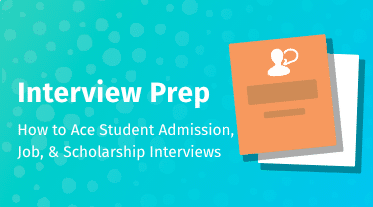
Skills Training
Interview Prep: How to Ace Student Admission, Job, and Scholarship Interviews
Even though you’ll do dozens of interviews during the course of your academic and professional career, you’ve probably had no… Read more
Waterloo AFM Application Trait Assessment – Part 2
Waterloo AFM Trait Assessment – Overview
The Trait Assessment is the second component of the SAFAA.
While the interview allowed the admissions committee to get to know more about you and your experiences, the Trait Assessment does the same thing, but in a different way.
Here, you’ll answer a series of questions, but don’t worry it’s not as hard as you think.
Keep reading to learn exactly what the Trait Assessment is all about and how you can prepare for this component of the SAFAA.
Here’s a quick snapshot of what you can expect in the Trait Assessment:
- There are 78 questions
- For each question, you must choose an answer on a 1-7 scale, with “Disagree Completely” as 1 and “Agree Completely” as 7
- This component of the SAFAA will take about 10 minutes to complete
The link for the Trait Assessment can be found in the same email as your video interview link (titled “Your SAFAA Links”).
*REMEMBER*: You MUST complete the video interview BEFORE the Trait Assessment so that you can fill out the necessary consent statements (see Question 1 in the Interview section above). If you do not, the admission committee will NOT review your SAFAA.
Once you have completed your interview, you will start the Trait Assessment.
The entire assessment is done through a third-party site called Thomas International (they call it the ‘High Potential Questionnaire’).
Once you click on the Trait Assessment link in your SAFAA Links email, you will be taken to a consent page. Simply click ‘Continue’ fill out your personal information, and you’re good to go.
Waterloo AFM Trait Assessment – Possible Questions
This assessment can be scary when you have no idea what types of questions to expect, so we’ve listed some of the types of questions you might expect to see.
Remember, you have to fill in the scale of ‘Disagree Completely’ or ‘Agree Completely’ on a scale of 1-7.
- I usually get excited and ready to take on new challenges when I have done well on a project.
- I pride myself on being a dedicated worker.
- I value giving and taking honest feedback.
- Thinking about my career stresses me out.
- Competing with my coworkers makes me work harder.
- In the work place, I believe that I must put myself first.
- I prefer not to set goals that are outside of my comfort zone.
- I get really stressed out when I know there’s a lot to do at work.
- People would describe me as someone who’s always on time.
- I don’t like going into situations where I don’t know what to expect.
- I let my work compromise my private life and my relationships.
- When taking part in a project, I go out of my way to learn new things.
You can see here that these questions test a broad range of topics, like your thought processes, values, workplace/school behaviour, and skills like teamwork, organization, and goal setting.
COACH’S TIP: Many of the students we work with tell us that these questions are super focused on work experience, and sometimes they find it difficult to complete because they don’t have that much work experience.
If you’re the same, don’t worry! Simply think about any extracurriculars you’ve done (like the ones you talked about during the interview component), as well as experiences at school like group projects, classes you’ve taken, etc.
These are meant to help the admissions committee get to know you, like how you work, what’s important to you, how you respond to tough situations, what you see for yourself in the future, and more. With information like this, they can get a better sense of if you fit into the program and will work well with their students, faculty, and staff.
Because of this, we see a lot of students thinking that they should answer one way or another so that they make themselves look as good as possible.
That is NOT the point of this assessment.
Instead, what you want to do is be honest and be yourself. Usually, your first response is the one that you should go with.
The last thing you want to do is overthink the questions and give answers that you think the admissions committee wants.
Just be you, that’s all they’re asking. 🙂
If you want to go the extra step and build some self-awareness so you can go into the Trait Assessment with confidence, we recommend that you read our Self-Awareness blog and connect with a coach to fill out your Student Identity Blueprint and prepare for this part of your SAFAA.
You Might Also Like
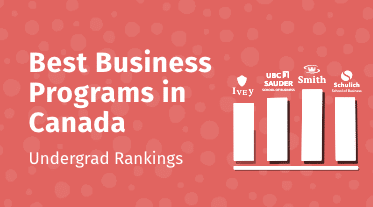
Rankings & Lists
Best Business Schools in Canada 2024 (Undergraduate Programs)
You’re investing a TON of time, money, and energy towards your future. You’ve gotten the grades, done a bunch of… Read more
Waterloo AFM Applicant Information Form (AIF)
The AIF isn’t part of the SAFAA. It’s optional, we HIGHLY recommend you complete it because it will help the admissions committee learn more about you, and you CANNOT be considered for a lot of UW SAF’s entrance scholarships without it.
Like the SAFAA, the deadline for the AIF is February 17, 2023 at 11:59pm EST.
Access your Waterloo AIF here.
In this section, we’ll go through each section of the Waterloo AIF and provide templates/examples so you can ace the Waterloo AIF.
REMEMBER: Check out this template we created to help you write unique and memorable AIF answers (keep reading for breakdowns and examples for each question of the AIF).
In the AIF, you’ll be asked to fill out questions that tell the admissions committee more about you, like your background, interest in the program, and prior education.
The AIF has 3 main components:
- About You: Part A
- About You: Part B
- Courses Completed
Some of the questions in the AIF are optional and some are required. However, we suggest that you complete ALL of the questions and lists, even if they are optional.
If you need help completing your AIF, connect with a coach to get the support you need.
Waterloo AIF Section 1: About You, Part A
This section asks you to describe your interest in the Waterloo AFM program, as well as details about your extracurriculars and employment activities.
Here are the questions:
WATERLOO AFM AIF SECTION 1, QUESTION 1 (REQUIRED ESSAY) – REASONS FOR CHOOSING WATERLOO
“Tell us about your education goals, your interest in your chosen program(s), and reasons for choosing to apply to the University of Waterloo (maximum 900 characters).”
Waterloo AFM AIF Breakdown – Reasons for Choosing Waterloo
This question is designed to help Waterloo’s School of Accounting and Finance admissions committee get a better sense of who you are, where you come from, and where you want to go.
Seems pretty straightforward, right? Well guess what…they write the question like this on purpose!
Most applicants will give the same types of answers, listing their interest in a career in accounting and finance and choosing Waterloo because it’s a top-tier program in this field.
However, Waterloo wants to see applicants who have thought deeply about their goals, their future, and their interests beyond the surface level. Simply saying that you want to graduate and be an accountant will not get you into the program. Instead, you need to come up with a few points that show your uniqueness and authenticity.
Luckily, you’ve already done most of the heavy lifting for the first part of this question (‘tell us about your education goals’) if you’ve completed the Student Identity Blueprint. When you did this, you worked with your coach to create audacious yet authentic goals based off of these aspirations, and you found ways to take them to the next level — and this is exactly what the Waterloo admissions committee wants to see in this section. If you haven’t completed your Blueprint yet, connect with a coach now.
For the second part of this question (‘your interest in your chosen program(s), and reasons for choosing to apply to the University of Waterloo’), do some research on Waterloo SAF and the AFM program specifically and the university as a whole. See if there are specific professors, clubs, mission statements, courses, etc. that stick out to you. This will show that you have made an educated decision in choosing Waterloo, and that you have just as much to offer them as they will offer you.
Waterloo AFM AIF Essay Template – Reasons for Choosing Waterloo
Get started on your template here (Click File > Make a Copy within the doc).
REMEMBER: There is a 900 character limit for this answer.
The general structure of your answer to this question should have these 4 parts (click here to learn more about each of them):
- Hook (Optional) (100 characters):
- Capture the reader’s attention and give a preview of what’s to come. Be specific to the AFM program as much as you can. Briefly state your education goals and your aspirations for the future.
- Context/Catalyst (100-200 characters):
- Briefly state your education goals and your aspirations for the future and then talk about how you developed your interest in the field of finance and accounting, and if there was a specific event or reason why you chose to apply to Waterloo AFM.
- Outcome (200-300 characters):
- Explain why you want to explore and evolve your passion for finance/accounting and explain why Waterloo is that place for you to explore those interests. Provide specific examples if you can (e.g. specific clubs you want to join, professors you want to work with, a specific class you want to take, etc.).
- Reflection (200-300 characters)
- Write a few points about how your goals and interests make you a good fit for the program and an asset to Waterloo more generally.
COACH’S TIP: Don’t worry about writing complete sentences in your template at first. Just write 2-3 bullet points under each section, just to get your ideas down. You can edit and perfect your answers later. If you’d like some more tips about writing these essays, check out our Narrative Communication Approach™ Guide.
Waterloo AFM AIF Example – Reasons for Choosing Waterloo
Here is an example of how to answer this question.
REMEMBER: Please note that all of the examples in this guide are EXAMPLES ONLY and are NOT meant for you to copy.
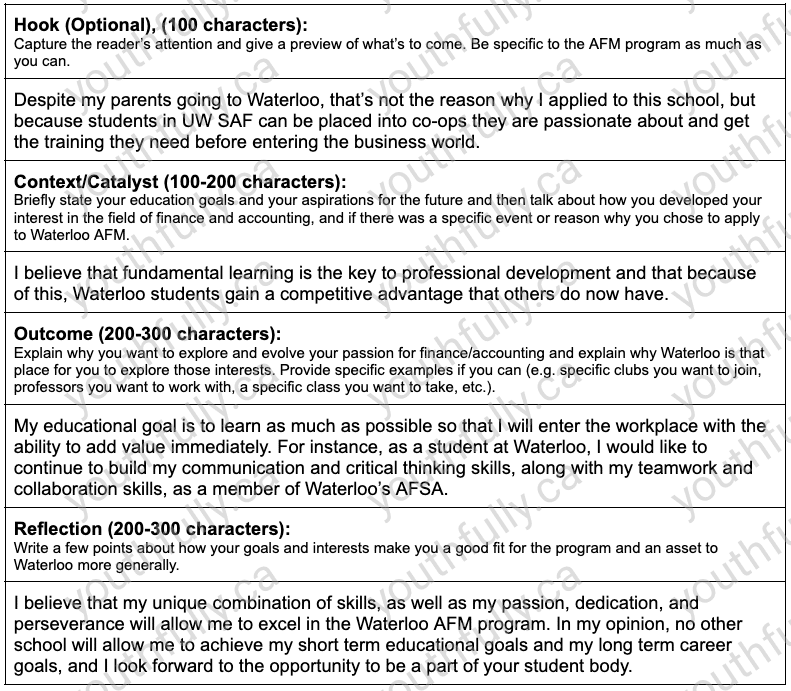
WATERLOO AFM AIF SECTION 1, QUESTION 2 (OPTIONAL LIST) – EXTRACURRICULAR ACTIVITIES
“Please list any extracurricular activities or areas of significant interest. These could include leadership or participation in school organizations or projects, athletics, travel, community, social activities, drama, music, clubs, personal hobbies and/or significant volunteer work.”
Waterloo AFM AIF Template – Extracurricular Activities
Get started on your template here (Click File > Make a Copy > Save it to your computer).
This section is one of the easier ones to complete. Simply fill in the:
- Activity Type: Athletics, clubs, community work, drama, hobbies, music, other, project, school organization, social activity, travel, or volunteer
- Description/Title (40 characters or less)
- Start Date (month/day/year)
- End Date (month/day/year)
- Whether you did this activity in Grade 10, 11, or 12
- Hours per week
- Weeks per year
Waterloo AFM AIF Example – Extracurricular Activities
Here’s an example of how this section might look:
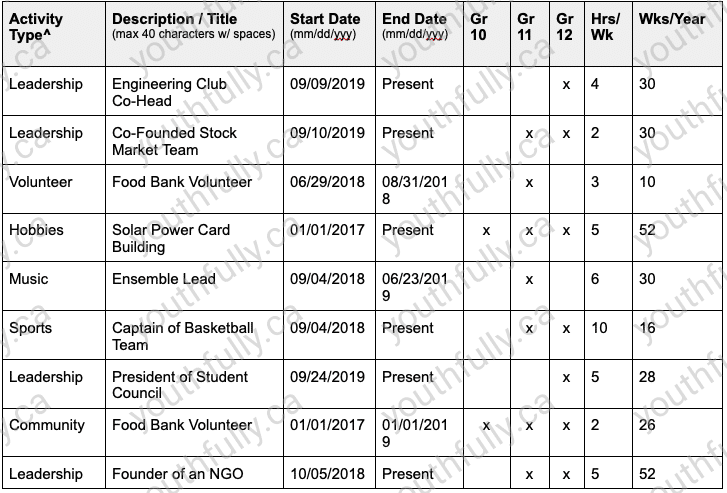
Do you have a bunch of extracurriculars and you’re not sure which to include? Connect with a coach for help.
WATERLOO AFM AIF SECTION 1, QUESTION 3 (OPTIONAL, BUT RECOMMENDED ESSAY) – EXTRACURRICULAR ACTIVITIES: ADDITIONAL INFORMATION
“Provide any additional information about anything in the table above.”
Waterloo AFM AIF Essay Question Breakdown – Extracurriculars: Additional Information
This question gives you the opportunity to provide more information about the ECs you listed in the previous section.
We highly recommend completing this section because it will allow you to give the admissions committee some insight into who you are, where you come from, and what you care about.
All of this is key if you want your application to stand out.
COACH’S TIP: You only get 600 characters (including spaces) for this question. When writing your essay, focus on your extracurriculars as a whole, and briefly reference 1-2 specific activities as examples. Looking at the big picture (i.e. what you learned, skills you gained, passions you developed, etc.) will show your purpose for taking part in these extracurriculars and how you grew as a person by doing them.
Use this section to focus on the impact your extracurriculars have had on you, what you’ve accomplished, and what you’ve learned along the way. Focus on traits that Waterloo looks for, like being a leader and innovator or being organized and able to manage your time. Drive home the idea that you have real-world skills and that you are using the extracurricular activities as a way to set specific goals that will help you have a positive impact on the world both now and in the future.
Waterloo AFM AIF Essay Template – Extracurriculars: Additional Information
Get started on your template here (Click File > Make a Copy).
We designed the template for this section to help you highlight your best extracurricular achievements in a memorable and unique way.
REMEMBER: You have a maximum of 600 characters for this section (including spaces).
The general structure of your answer to this question should have these three parts (and should be one paragraph in the end):
- Hook (~100 characters)
- Think of the Hook like a ‘pitch’ in this example. Provide a quick high-level pitch of how your extracurriculars have made you a better applicant.
- Context/Catalyst (~350 characters)
- Mention any quantifiable or significant outcomes from your extracurriculars. Do this for your most impactful extracurriculars.
- Outcome/Reflection (~150 characters)
- Describe what this means to your candidacy (i.e. how does it make you a better applicant and a great fit for the Waterloo AFM program?)
COACH’S TIP: Use this to develop a single paragraph highlighting your BEST extracurricular achievements. Make sure to demonstrate real-world skills like problem solving, time management, leadership, and commitment within each.
Waterloo AFM AIF Essay Example – Extracurriculars: Additional Information
Here’s an example of a response to the question.
REMEMBER: This is an EXAMPLE ONLY and is NOT meant for you to copy.
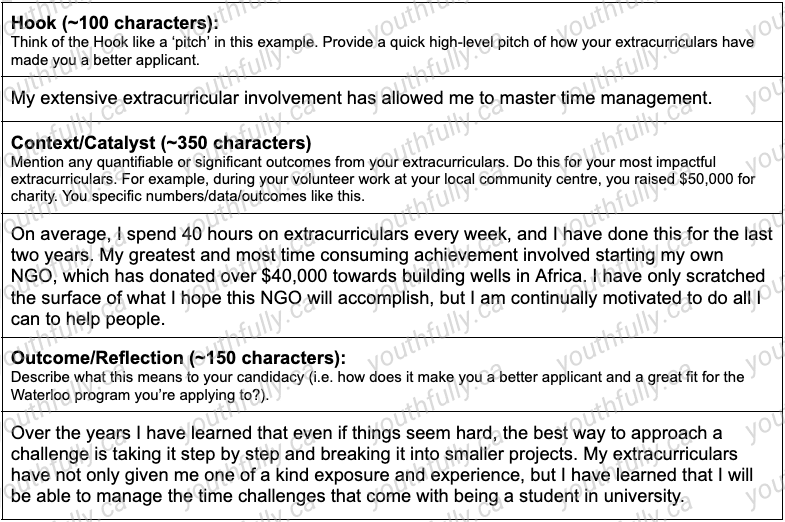
You Might Also Like
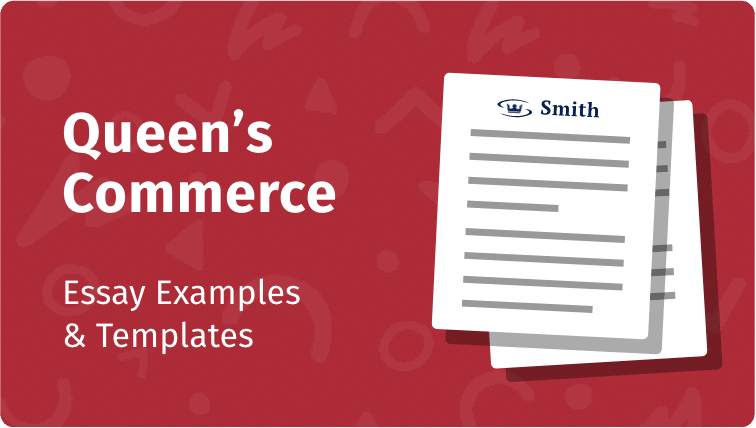
Application Prep
Queen’s Commerce: Supplementary Application Essay Examples & Templates 2023/2024
If you are looking for guidance on the Queen’s (Smith) Commerce supplementary application, as well as Queen’s Commerce essay examples… Read more
WATERLOO AFM AIF SECTION 1, QUESTION 4 (REQUIRED LIST) – EMPLOYMENT
“Please list your most significant part-time or full-time employment in the past 2 years, beginning with the most recent.”
If you have been away from school or university for more than two years, you can send a current resume to myapplication@waterloo.ca (make sure to include your Waterloo ID#).
Waterloo AFM AIF Template – Employment Background
Get started on your template here (Click File > Make a Copy).
Enter your employment experience in reverse chronological order (i.e. your older experiences at the bottom and your most recent at the top).
Fill in these components:
- Employer (max 30 characters with spaces)
- Description/Title (max 50 characters with spaces)
- Brief description of work/your role (max 254 characters with spaces)
- Hours of work per week
- Start date
- End date
Waterloo AFM AIF Example – Employment
Here’s an example of what this section might look like:

WATERLOO AFM SECTION 1, QUESTION 5 (REQUIRED LIST) – SPECIAL ACHIEVEMENTS, DISTINCTIONS, AND AWARDS
“If you have received any academic or non-academic awards or distinctions, please list them below. Please provide the Size of Competition if you know how many people participated.”
Waterloo AFM AIF Template – Special Achievements, Distinctions, and Awards
Get started on your template here (Click File > Make a copy).
Enter your special achievements/awards/distinctions in reverse chronological order (i.e. your older experiences at the bottom, and your most recent at the top).
Fill in these components:
- Award Type (i.e. academic or non-academic)
- Award, honour, or distinction type/name (254 characters with spaces)
- Year you received it
- Size of the competition (i.e. how many people you competed against/how big the applicant pool was)
Waterloo AFM AIF Example – Special Achievements, Distinctions, and Awards
Here’s a Waterloo AFM Essay Example of what this section might look like:

Waterloo AFM AIF Section 2: About You – Part B
This section asks you to describe your prior education, and you’ll have the opportunity to discuss any relevant outside circumstances or additional personal information.
WATERLOO AFM AIF, SECTION 2, QUESTION 1 (REQUIRED ANSWER) – INSTITUTION(S) ATTENDED
“The name and location of the secondary or post-secondary school(s) you are now attending or have attended should be listed below. Are any secondary or post-secondary schools missing from the list? If yes, please add them in the space below.”
For this section, answer ‘Yes’ or ‘No’ and write the name of your secondary/post-secondary institution(s).
WATERLOO AFM AIF SECTION 2, QUESTION 2 (REQUIRED ANSWER) – POST-SECONDARY EDUCATION
“Have you taken or are you currently taking courses at a college or university?
Simply answer ‘Yes’ or ‘No’.
If you answer ‘Yes’, give the name of the college or university, the start and end dates of your studies there, and the number of courses you took. You are required to submit all official final college or university transcripts.”
WATERLOO AFM AIF SECTION 2, QUESTION 3 (OPTIONAL, BUT RECOMMENDED ESSAY) – ADDITIONAL INFORMATION
“In addition to the specific information requested in all of the AIF questions, please tell us anything else about yourself that you would like us to know when we review your application.
Please make sure to complete all sections of the AIF before submitting this page. (900 character limit)”
Waterloo AFM AIF Essay Question Breakdown – Additional Information
Think of this essay as your final pitch to the admissions committee about why you should be accepted to the Waterloo Accounting & Financial Management program.
There are thousands of applicants — what makes YOU different?
Is there a certain trait that everyone always mentions, like your unwillingness to give up, your epic accounting skills, or your ability to see the world in a unique way? That trait is exactly what you should focus on here.
Digging deeper into this will drive home the point that you are different from other applicants and that the admissions committee would be crazy not to let you in.
Using this essay to explore differentiating traits will also show that you have self-awareness and have an interest in constantly improving. If you’ve filled out our Student Identity Blueprint, then you probably have a pretty good idea about all the cool things that make you, you — and now it’s time to share them (keep reading to learn how). If you haven’t filled out your Blueprint, connect with a coach to get started.
Waterloo AFM AIF Essay Template – Additional Information
Get started on your template here (Click File > Make a Copy > Save to your computer).
We designed this template so that you can choose one thing that differentiates you from everyone else, like your creativity, perseverance, or your wide range of experiences, which are all things that the admissions committee looks for.
The general structure of your answer to this question should have these components (get a detailed breakdown of these components here):
- Hook/Context (~150 characters)
- Something interesting to help you stick out from other candidates in this section.
- Catalyst/Outcome (~350 characters)
- Describe to them how you would describe yourself. Make it personable and unique. Was there something specific that impacted who you are (like an experience, upbringing, circumstance, etc.)? What would the admissions committee be surprised to learn about you?
- Reflection (~300 characters)
- Describe how who you are makes you not just a good fit, but also a good asset to Waterloo. Remember: you want to go there, but they want to attract the best students. Tell them why you are the best student. Finish by providing a brief explanation for why you are the best and will succeed at Waterloo. Make this explicit and catchy.
Not sure which differentiator to focus on? Connect with a coach to choose the best one.
Waterloo AFM AIF Essay Question Example – Additional Information
Here’s an example of an answer to this question:
Example 1: Creativity
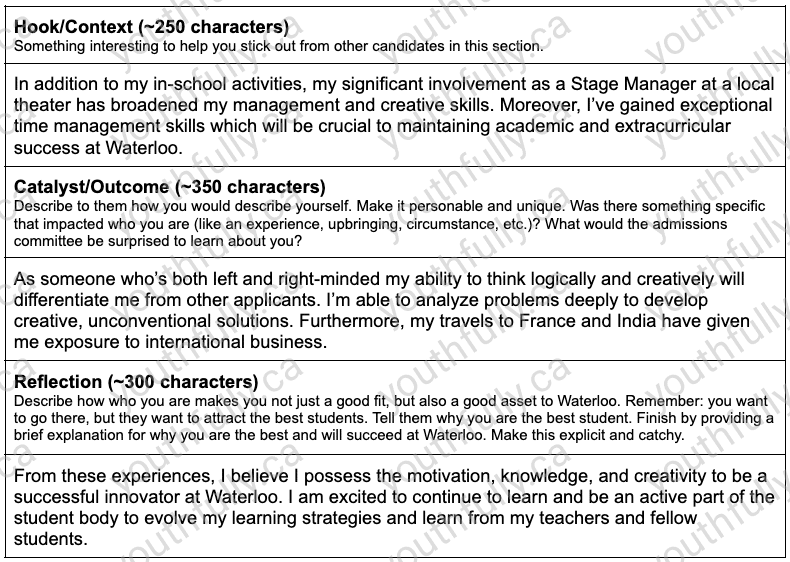
Example 2: Perseverance
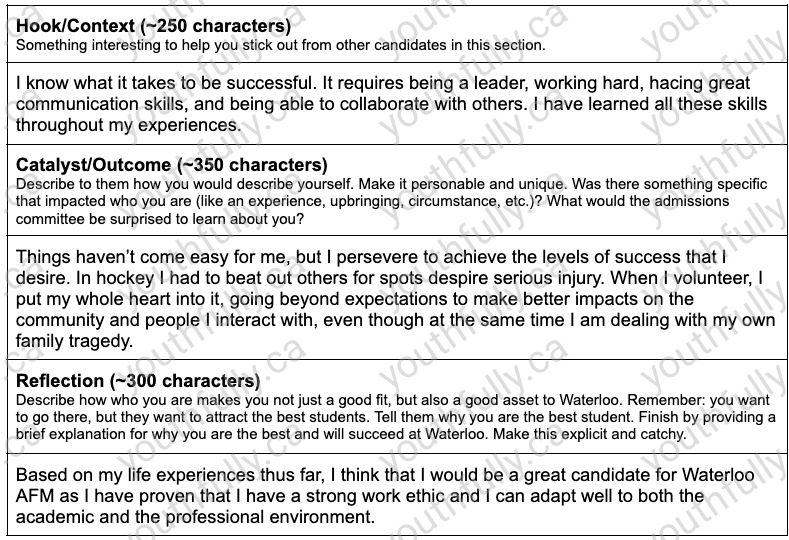
Find the mentor you’ve been looking for.
get a youth coach™
Waterloo AFM AIF Section 3: Courses
This section focuses on the coursework you’ve completed in school, as well as additional outside courses.
WATERLOO AFM AIF SECTION 3, QUESTION 1 (REQUIRED LIST) – CURRENT 2021/2022 COURSES
“List your current courses and courses that you will complete by the end of the academic year.”
COACH’S TIP: There are specific instructions for Ontario students, students outside of Ontario, and all students, so make sure you read the instructions carefully to ensure you’re giving the correct information. Also, do not try to convert your grades from 1-100 (e.g. 91%). AP uses grading from 1-5, so under “level” list AP and then put the actual grade in the course mark section.
If you need help with this section, connect with a coach for support.
Waterloo AFM AIF Template – Current Courses
Get started on your template here (Click File > Make a Copy).
You are required to list the following information:
- Course name
- Level
- Scool
- Completion Date (if incomplete, write IP)
- Whether you added this course as (if applicable)
- Night School
- Summer School
- Saturday School
- Distance Education/Online
- Repeated
- Course mark
Waterloo AIF Example – Current Courses
Here’s an example of what this section might look like:

WATERLOO AFM AIF SECTION 3, QUESTION 2 (OPTIONAL LIST) – COURSES PRIOR TO FALL 2021
“List all the courses you’ve taken in Grades 9-11.”
Waterloo AFM AIF Template – Courses Prior to Fall 2021
Get started on your template here (Click File > Make a Copy).
You are required to list the following information:
- Course name
- Level
- Scool
- Completion Date
- Whether you added this course as (if applicable)
- Night School
- Summer School
- Saturday School
- Distance Education/Online
- Repeated
- Course mark
COACH’S TIP: Just like in Question 1, make sure you read the instructions carefully for Ontario students, students outside of Ontario, and all students.
WATERLOO AFM AIF SECTION 3, QUESTION 3 (OPTIONAL ESSAY) – ADDITIONAL COURSE INFORMATION
“If you are not attending high school, CEGEP, or equivalent, list courses relevant to our admission requirements for the program(s) you applied to. Please explain your background in this section. (900 character limit)”
Waterloo AFM AIF Essay Question Breakdown – Additional Course Information
This essay does not need to be extremely detailed, but it is meant to provide the admissions committee with a brief explanation about additional courses you’ve completed and why you completed them.
Answer these questions in your essay:
- What were the additional courses?
- When did you take this course?
- Why did you take this course?
- What was the outcome?
- How will it help you at Waterloo (optional)?
Do this for every course that falls into this category, making a separate paragraph for each.
Waterloo AFM AIF Template – Additional Courses Information
Get started on your template here (Click File > Make a Copy > Save to your computer).
Complete this section if you took courses outside of high school that weren’t repeated or upgrade courses.
We designed this template in a way that will help you organize your thoughts and give the necessary background for each course, so that you can easily turn it into an essay.
You’ll see sections for: When, Course Name, and Background.
Add bullet points in each section, and when you’re done, take out the bullet points and make complete sentences. It’s that easy!
Waterloo AFM AIF Example – Additional Courses Information
Here’s an example of this question using the template, and then easily turning it into an essay:

WATERLOO AFM AIF SECTION 3, QUESTION 4 (OPTIONAL ESSAY) – COURSES NOT TAKEN AT YOUR REGULAR DAY SCHOOL
“Please provide a reason why any Grade 12 (or equivalent) courses listed above were not taken at your regular day school. (900 character limit)”
Waterloo AFM AIF Essay Question Breakdown – Courses Not Taken at Your Regular Day School
This essay does not need to be extremely detailed, but it is meant to provide the admissions committee with a brief explanation about courses you’ve completed outside of regular school and why.
Answer these questions in your essay:
- What was the course?
- When did you take this course?
- Why did you take this course?
- What was the outcome?
- How will it help you at Waterloo (optional)?
Do this for every course that falls into this category, making a separate paragraph for each.
Waterloo AFM AIF Essay Template – Courses Not Taken at Your Regular Day School
Get started on your template here (Click File > Make a Copy).
If you checked “Night School”, “Summer School”, “Saturday School”, or “Distance Education/Online” for any courses in Question 1 and/or Question 2, explain why you took those courses here.
Like Question 3, we’ve created a template that will help you create bullet points under “Course Name” and “Explanation” for each course, and then use that to easily create an essay afterwards.
Do this for every course that falls into this category.
Waterloo AIF Example – Courses Not Taken at Your Regular Day School
Here’s an example of this question using the template, and then easily turning it into an essay:

Here’s an example of an essay from the above example:
I took ENG4U in summer school. As a result of playing Junior Hockey, my workload during the school year is intense. As a result, I need to take courses in the summer to balance the workload during the school year. Even though I am taking one less class during the year, I still have an above workload during the year as a result of hockey.
WATERLOO AFM SECTION 3, QUESTION 5 (OPTIONAL ESSAY) – REPEATED COURSES
“Please provide a reason why any Grade 12 (or equivalent) courses listed above were repeated. (900 character limit)”
Waterloo AFM AIF Essay Question Breakdown – Repeated Courses
This essay does not need to be extremely detailed, but it is meant to provide the admissions committee with a brief explanation about courses you’ve had to redo and why.
You can use the SAME information as in your Interview Question 7.
Answer these questions in your essay:
- What was the course?
- When did you take this course?
- Why did you have to take this course again?
- What was the outcome?
Do this for every course that falls into this category, making a separate paragraph for each.
Waterloo AFM AIF Essay Template – Repeated Courses
Get started on your template here (Click File > Make a Copy).
If you took a class again, like Grade 12 Math or English, explain why you did that here.
REMEMBER: If you repeat a required course, Waterloo will either take the original grade OR the new grade, and then deduct 5 points off that. For example, if you got an 80 the first time you took Grade 12 Math and then you took it again and got a 90, Waterloo will record it as an 85. If it is not a required course, there will be no adjustment.
Use this template for every course that falls into this category.
- Course name (<5 words):
- List the full course name and the course code.
- When You Took It (<10 words):
- Write when you took the course.
- Why Did You Take The Course Again? (<40 words):
- Explain the circumstances that caused you to retake the course.
- What Was the Outcome? (<45 words):
- Talk about what happened when you took it again (i.e. whether you passed/failed taking it again, the grade you got when you retook it, etc.)
Waterloo AIF Example – Repeated Courses
Here’s a Waterloo AFM essay example of this question using the template:
Example: Accident
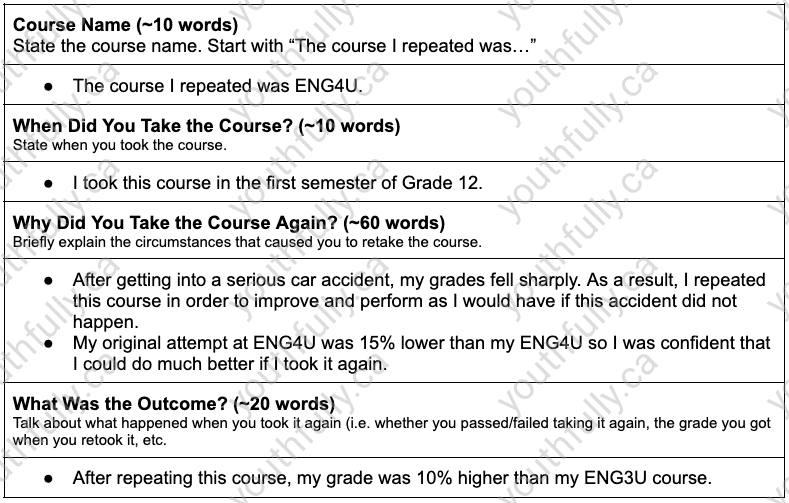
WATERLOO AFM AIF SECTION 3, QUESTION 6 (OPTIONAL ESSAY) – UPGRADING
“If you have been out of school and are in the process of refreshing your academic skills for admission to the University of Waterloo, such as by taking pre-university-level mathematics courses, please list the course(s) below. (600 character limit)”
Waterloo AFM AIF Essay Question Breakdown – Upgrading
This essay does not need to be extremely detailed, but it is meant to provide the admissions committee with a brief explanation about courses you’ve had to redo and why.
Answer these questions in your essay:
- What was the course?
- When did you take this course?
- Why didn’t you complete this course previously?
- What was the outcome?
Do this for every course that falls into this category, making a separate paragraph for each.
If you have the character space, briefly emphasize your passion for accounting/finance here. Showing willingness to upgrade so that you can pursue a degree in the field of finance will showcase your passion, dedication, and interest in this field.
Waterloo AFM AIF Essay Template – Upgrading
Get started on your template here (Click File > Make a Copy).
Like Question 5, we’ve created a template that will help you create bullet points under “Course Name” and “Explanation” for each course, and then use that to easily create an essay afterwards.
Do this for every course that falls into this category.
Waterloo AIF Example – Upgrading
Here’s an example of this question using the template, and then easily turning it into an essay:

Here’s a Waterloo AFM sample of an essay from the above example:
After graduating high school, I took MCV4U at an adult high school. Originally when I graduated high school, I wanted to go onto Political Science and therefore I did not require this course. However, I have since realized that my passion lies in finance and therefore I took MCV4U in order to be a strong applicant for the AFM program at Waterloo.
If you are unsure about what category your courses fall under for Questions 3-6, or you’re unsure about how to create simple and informative essays to explain each course, connect with a coach anytime for help.
You’ve Got a Dedicated Coach in Your Corner
For over a decade, we have worked with thousands of students to help them achieve more than they ever thought possible.
Our coaches have a strong success rate supporting students as they apply to the Waterloo AFM program, among other top university programs.
Our 1-on-1 Youth Coaching fills that gap that most high schools miss. We can help you build self-awareness through probing questions and assessments, set bigger goals to elevate your extracurriculars and future career plans, and improve skills that matter on supplementary applications, such as interviewing, written communication, critical thinking, and creativity.
We use a coaching methodology, called ‘full student’ development, that’s been proven to increase your chances of admission to top-tier universities and obtaining competitive jobs/internships.
So, what are you waiting for? Fulfill your post-secondary potential with the mentorship and coaching you’ve always wanted!
IMPORTANT: Want to share information and/or images from this resource on your own website, blog, article, etc.? Please ensure you reference content of any kind published by Youthfully Inc., in whole or in part, using the following statement: (1) Our Organization (Youthfully Inc.); (2) The title of our content/resource; and (3) the URL to our webpage where the content was originally posted. For example: “Sourced from: Youthfully Inc., ‘Waterloo SAFAA (AFM): Interview Examples & Trait Assessment PLUS Waterloo AIF Examples 2023/2024’, https://youthfully.com/waterloo-afm-application/.”
Not doing so is an infringement of copyright and is illegal. We spend significant time developing resources for students, so please take a few seconds to ensure they are referenced properly.
DISCLAIMER: While the information in this blog is considered to be true and correct at the date of publication, and although our team makes every attempt to ensure that the information is accurate and vetted by university staff, Youthfully is not in any way liable for the accuracy of any information printed and stored or in any way interpreted and used by a user.
Interview Qs 1-3
Interview Qs 4-5
Interview Qs 6-7
Trait Assessment
AIF: Section 1, About You A
AIF: Section 2, About You B
AIF: Section 3, Courses Q1-3
AIF: Section 3, Courses Q4-6
Get 1-on-1 Support

